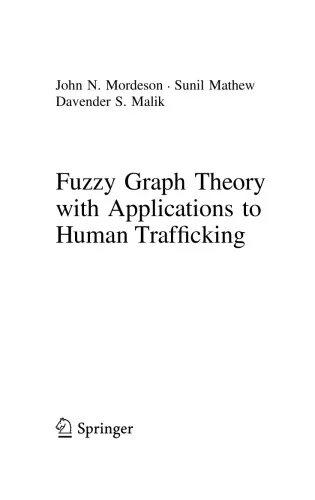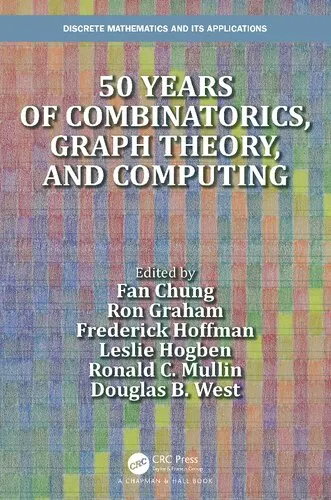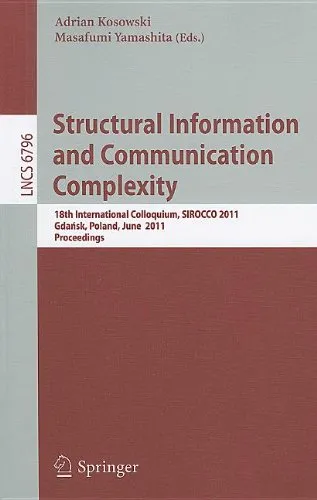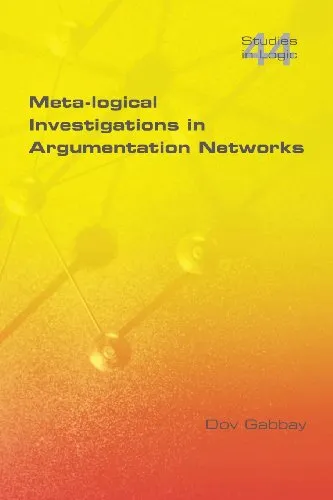Implicit Dimensions of Contract: Discrete, Relational, and Network Contracts (International Studies in the Theory of Private Law)
4.0
Reviews from our users

You Can Ask your questions from this book's AI after Login
Each download or ask from book AI costs 2 points. To earn more free points, please visit the Points Guide Page and complete some valuable actions.کتاب های مرتبط:
Introduction to 'Implicit Dimensions of Contract: Discrete, Relational, and Network Contracts'
"Implicit Dimensions of Contract: Discrete, Relational, and Network Contracts" explores the nuanced and evolving nature of contracts within private law. More than a mere transactional tool, contracts are deeply embedded in our social, cultural, and economic systems. By examining the implicit dimensions of contracts, this book unveils the intricate interplay between formal legal structures and the complex relationships they govern.
The book, authored by David Campbell, Hugh Collins, and John Wightman, is a cornerstone in the International Studies in the Theory of Private Law series. It challenges traditional understandings of contract law and provides a comprehensive look at contracts in three forms: discrete contracts, relational contracts, and network contracts. Each form is analyzed within its broader theoretical, practical, and societal implications, making this work an essential resource for legal scholars, practitioners, and anyone interested in the dynamic nature of private law.
This introduction provides a detailed summary of the book, key takeaways, famous quotes, and an analysis of why this book matters in contemporary legal scholarship.
Detailed Summary of the Book
The book begins by addressing the conceptual foundation of contracts in modern legal systems. The authors highlight the diverse functions that contracts perform, spanning beyond the simple agreement between parties to encompass a much broader social context. Contracts are dissected into three primary forms:
- Discrete Contracts: These are transactional agreements with clearly defined terms, often involving limited interaction between the parties. The discussion provides examples from commercial transactions, emphasizing the clarity and simplicity of this form.
- Relational Contracts: These go beyond discrete agreements to involve ongoing relationships between parties. Relational contracts often evolve over time, requiring trust and adjustments that cannot always be explicitly stated in formal terms.
- Network Contracts: Representing a more contemporary focus, network contracts analyze the web of interdependencies in modern commercial and corporate relationships. This section examines how globalization and technological advancements have transformed contract law to accommodate complex networks.
Each chapter delves into the implicit dimensions of these contracts, focusing not only on their legal structure but also on the underlying relationships and societal expectations they embody. The authors illustrate how the application of private law varies across discrete, relational, and network interactions, shedding light on the tension between formal contract law and the reality of human relationships.
Key Takeaways
- Understanding contracts as social constructs as much as legal instruments.
- The importance of trust and flexibility in relational contracts.
- How globalization and technology are reshaping network contracts.
- The implicit assumptions underlying formal agreements and their role in ongoing negotiations.
- Balancing legal certainty with the need for adaptability in contract law.
Famous Quotes from the Book
"Contracts are not merely about promises; they are frameworks of human interaction, rich with trust, expectation, and unspoken understanding."
"The evolution of contract law is a testament to society's capacity to reconcile legal certainty with social flexibility."
"Relational contracts expose the limits of formalism, illustrating that adaptability and relationships are as crucial as the agreements themselves."
Why This Book Matters
The significance of "Implicit Dimensions of Contract" lies in its ability to bridge the gap between theory and practice. In an era where economic globalization and technological advancement are radically transforming how businesses and individuals interact, understanding the implicit elements of contracts is more important than ever. This book presents a critical lens for examining traditional contract law, urging legal scholars and practitioners alike to consider the broader societal and relational dynamics at play.
Furthermore, it contributes to the growing body of literature advocating for a relational and contextual understanding of private law. By unpacking the tension between formality and practicality within contracts, the authors pave the way for a more responsive and adaptive legal system.
Whether you are a student of law, a practicing professional, or simply someone interested in the foundations of human agreements, "Implicit Dimensions of Contract" offers invaluable insights into the core principles of human cooperation and interaction within the legal framework.
Free Direct Download
You Can Download this book after Login
Accessing books through legal platforms and public libraries not only supports the rights of authors and publishers but also contributes to the sustainability of reading culture. Before downloading, please take a moment to consider these options.
Find this book on other platforms:
WorldCat helps you find books in libraries worldwide.
See ratings, reviews, and discussions on Goodreads.
Find and buy rare or used books on AbeBooks.
1322
بازدید4.0
امتیاز0
نظر98%
رضایتReviews:
4.0
Based on 0 users review
Questions & Answers
Ask questions about this book or help others by answering
No questions yet. Be the first to ask!













